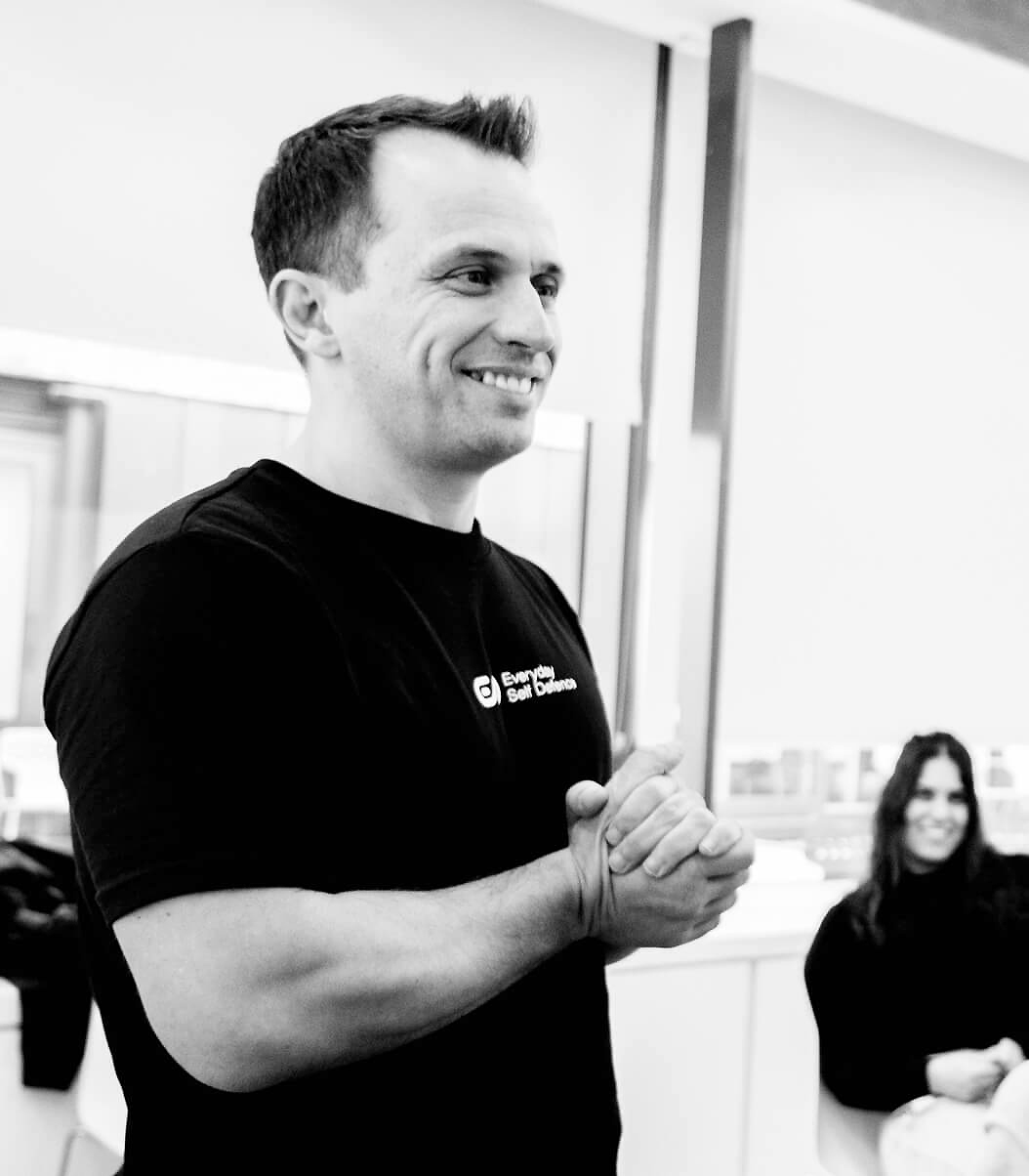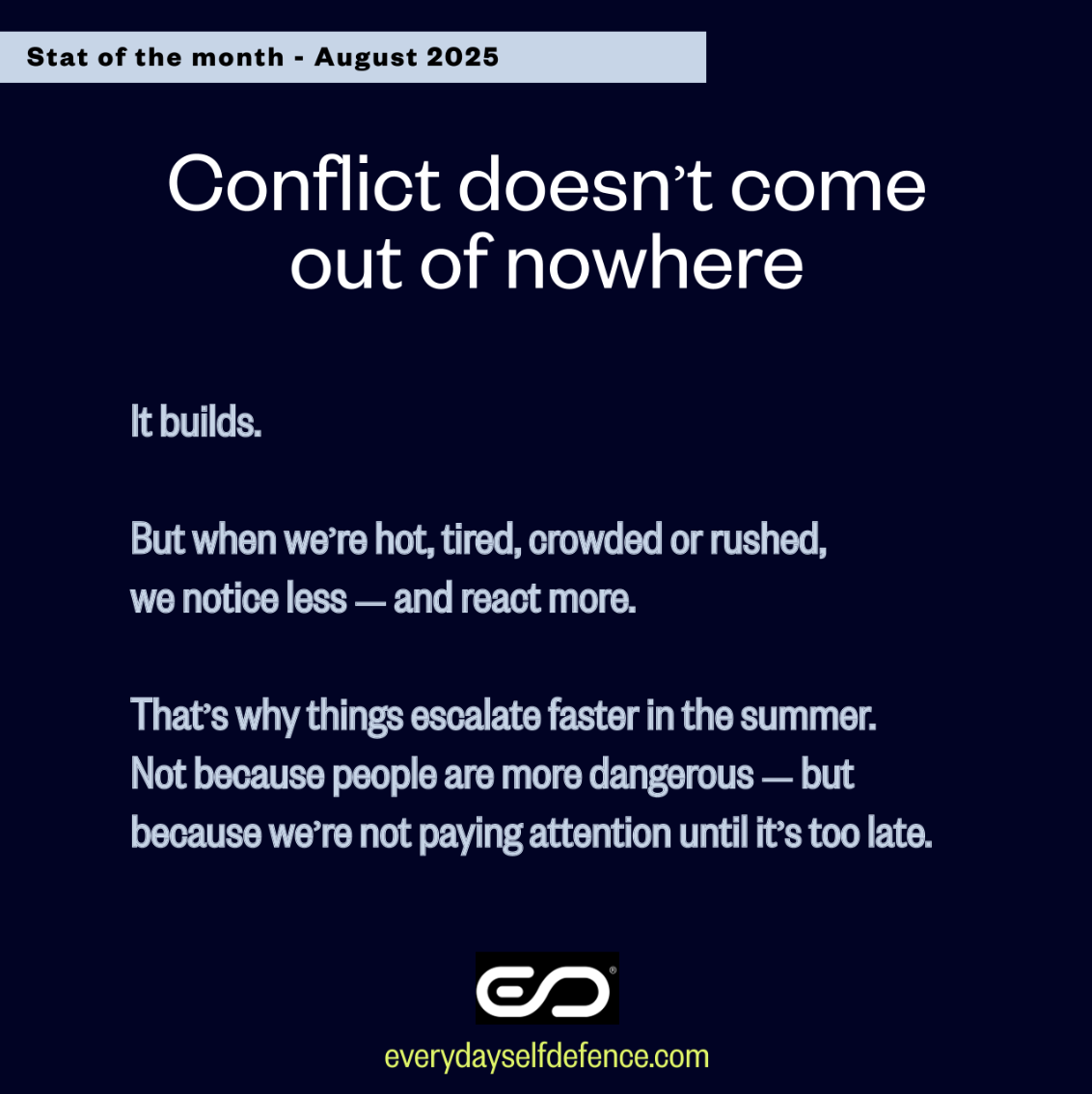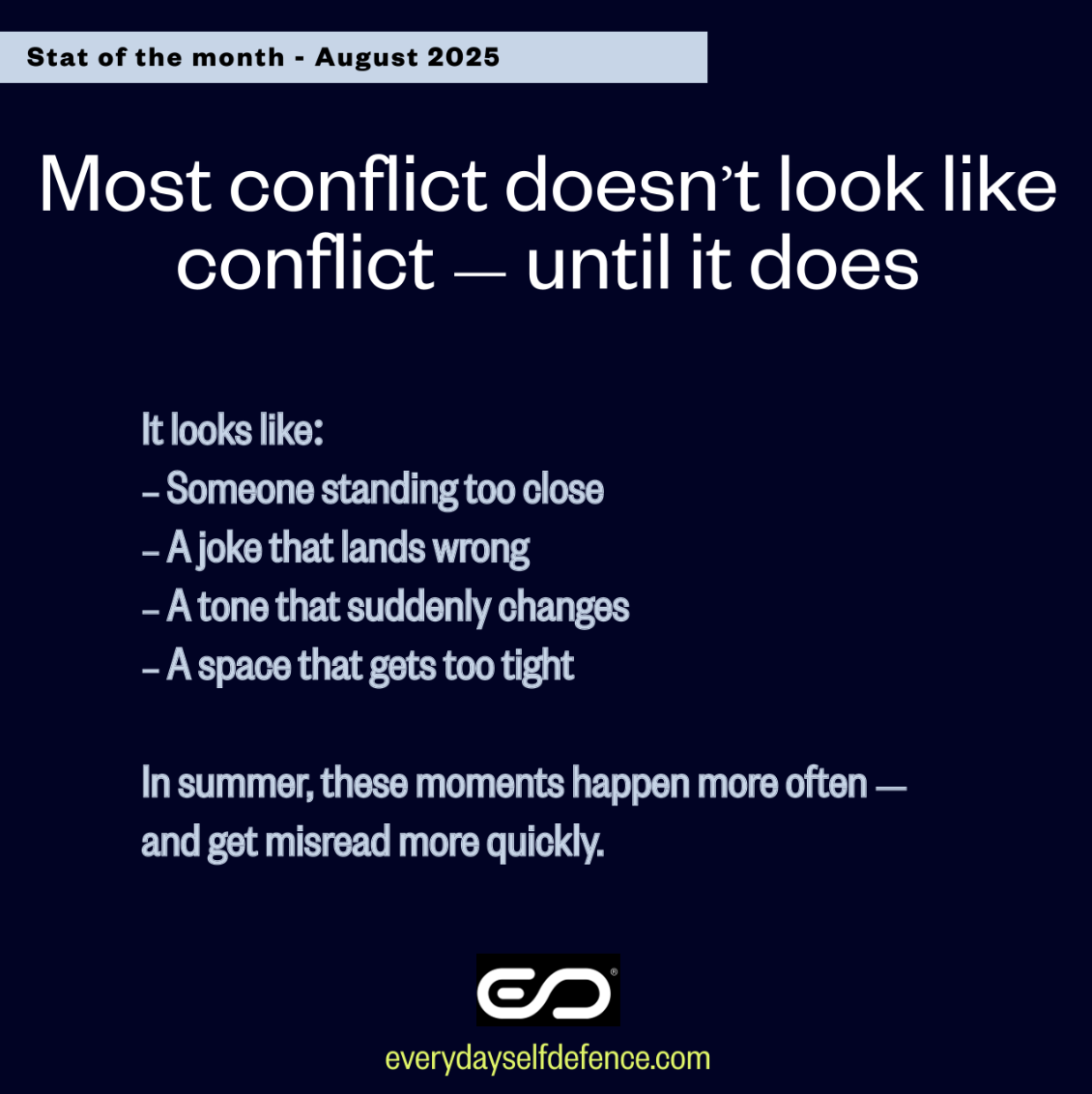
One hot summer afternoon, I found myself in a standoff at a petrol station. I was tired, in a hurry, and blocked in by a stranger who cut across the forecourt...
I say it in training all the time:
Stay calm. Keep your body language open. Keep your voice steady. Keep control.
Simple to say. Harder to live by.
One hot summer afternoon, I found myself in a standoff at a petrol station. I was tired, in a hurry, and blocked in by a stranger who cut across the forecourt.
I could feel it rising — the heat in my chest, the words rehearsing themselves in my head. And they weren’t the ones I teach.
The truth is, it wasn’t even about their car. It was about me losing control of my plan, my day. The car was just the trigger.
We always respond to the act, not the deeper feeling underneath it and that’s why things often go bad. We think that by telling the other person they’re “wrong,” they’ll suddenly agree.
Rarely the case.
For a split second, I was right on the edge of saying something that would have lit the fuse.
Not instantly, but soon enough, I caught myself. Closed the window back up. Took a breath. Drove away.
Did it feel like “winning”? No.
Did it keep me safe? Yes.
That’s the real skill.
Calm isn’t permanent. You can lose it in an instant. The key isn’t in never slipping, it’s in noticing when you’re about to, and recovering before it costs you.
And here’s the trap: calm is your state, not theirs. Yet we’re almost wired to say “Calm down” in the heat of the moment, it comes out before we’ve even thought. The problem? It sounds arrogant “be like me” and nearly always makes things worse.
So if you’ve ever thought, “I knew what I should do, but I couldn’t manage it” — you’re not alone. Nobody holds it together perfectly. Not even the trainers.
Because safety isn’t about never losing calm.
It’s about finding it again quickly enough to say and do the right thing, the thing that keeps you safe, and lets you carry on with life.

Calm is your state, not theirs. Yet we’re almost wired to say “Calm down” in the heat of the moment, it comes out before we’ve even thought. The problem? It sounds arrogant “be like me” and nearly always makes things worse.
So if you’ve ever thought, “I knew what I should do, but I couldn’t manage it” — you’re not alone. Nobody holds it together perfectly. Not even the trainers.
Because safety isn’t about never losing calm. It’s about finding it again quickly enough to say and do the right thing, the thing that keeps you safe, and lets you carry on with life.

Ready to equip yourself and your staff with essential self-defence skills, including effective de-escalation techniques?










